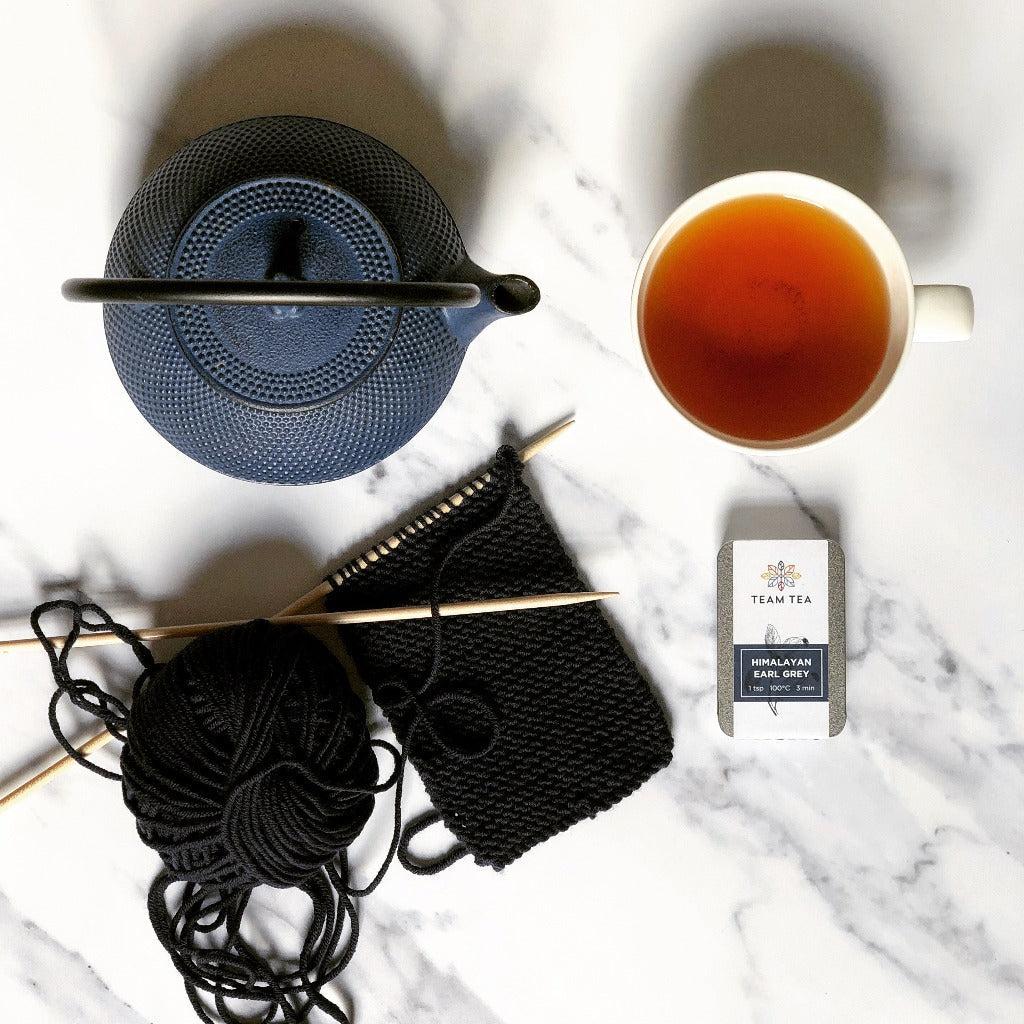
Do you drink your black tea black?
Milk or no milk – that is the question
Introduction
Black tea is one of the nation’s most cherished drinks. Over the centuries it has journeyed from China, India and beyond, becoming a staple of British life. Here in the UK, one of the longest-standing traditions has been adding milk to tea – a habit that took hold in the 17th and 18th centuries to soften strong flavours and some say to prevent delicate porcelain cups from cracking when hot tea was poured.
Today, most English Breakfast blends and big-brand teabags are still enjoyed with a splash of milk. But there’s another way. To drink black tea black – that is, without milk – allows the true character of the tea to shine through. From floral notes and fruity sweetness to smoky depth and spice, adding milk can mask the very qualities that make each tea unique.
Maybe you’re ditching dairy, you’ve run out of milk and don’t fancy popping to the shops, or perhaps you simply want to try something new – there are plenty of reasons to enjoy your black tea black.
In this post, we’ll explore ten of our favourite black teas that are especially rewarding to drink black, showcasing the variety and nuance that only come through when the tea is left untouched.

Our 10 Favourite Black Teas to Drink Black
1. Singell 1st Flush 2025 Darjeeling Organic
Darjeeling First Flushes are some of the most delicate black teas, delivering a crisp, herbaceous flavour with fruity notes, gentle astringency and a lingering finish of woody spice, best enjoyed without milk. A superb seasonal tea from the Singell garden (DJ02/25), this second batch of the year’s first flush is organic and full of character. The aroma is distinctly Darjeeling with a natural sweetness and the liquor is pale with a blush of apricot.
2. Peregrine Mountain 1st Flush, Yunnan
An exquisite first flush black tea from the mountains of Yunnan. The long, neat leaves and golden buds produce a smooth, silky liquor with flavours of dark raisin, plum and caramel. This tea is maltier than the Darjeeling first flush, and feels like a hug in a mug, amazing with a chocolate brownie. Strong enough to take milk, but best appreciated on its own.
3. Imperial Keemun Mao Feng
Hailing from Huangshan in Anhui, China, this early harvest spring tea is smooth yet robust. Picked from a Camellia Sinensis Sinensis variety, and 'sinensis' black teas notoriously pair worse with milk than their 'assamica' counterparts. Expect nutty, woody notes with hints of biscuit sweetness and a wine-like depth - black is where its true finesse lies.
4. Himalayan Earl Grey
Whilst some Earl Grey blends take milk well, Himalayan Earl Grey is a fragrant blend of high-altitude teas from Darjeeling, Nepal and the surrounding Himalayan region, enhanced with uplifting citrusy bergamot. Elegant, bright and zesty, this is an Earl Grey that shines without milk.
5. Margaret’s Hope Darjeeling
From one of Darjeeling’s most famous gardens, this tea is grown at around 6,800 feet in the Himalayan foothills. It’s celebrated for its wine-like flavour, often likened to the Muscat grape, with notes of currants and a flowery aroma. Whilst darker than the first flush Darjeeling, this is still a more delicate and refined afternoon tea that rewards being drunk black.
6. Lapsang Souchong
Bold, smoky and unapologetically distinctive. This Lapsang Souchong, grown in Nantou County, Taiwan, at 1,000–2,000 feet, offers an intense smoky aroma with hints of pine and oak. Best appreciated black to enjoy its full depth and character.
7. Kim Tuyen ‘Rainforest Black’ Vietnam
From the Tam Duong district in the foothills of the Hoang Lien Son mountains, this black tea is naturally sweet and floral, with a tropical aroma. A bright, refreshing cup that is particularly well suited to being drunk without milk.
8. Temi Sikkim Organic
From the famed Temi Tea Garden in Sikkim, India, this organic tea combines the muscatel qualities of Darjeeling with a smooth, full-bodied richness. Complex, balanced and aromatic – perfect for drinking black.
9. Imereti Georgia Organic
A rare gem from Georgia’s Imereti region. This organic black tea is smooth and medium-bodied, with gentle malty notes and a clean, sweet finish. A fine example of how terroir shapes flavour, best enjoyed unadulterated.
10. Black Emerald Colombia Organic
Grown on volcanic soils high in the Colombian Andes, this organic black tea produces a medium-bodied liquor with natural sweetness, subtle chocolate notes and a pleasant lingering aftertaste. Milk would only hide its charm – black is the way to go.
Summary & Tips for Drinking Black Tea Black
-
Why go milk-free? Drinking black tea black reveals the full spectrum of flavour – floral, fruity, smoky, spicy or malty – without being muted by dairy or alternatives.
-
Brew with care. Use good-quality loose leaves, fresh water and the right temperature. First flush and delicate teas often benefit from slightly cooler water.
-
Mind the leaf-to-water ratio. Use enough leaf for a rounded flavour, especially when you’re not softening the brew with milk.
-
Fresh water matters. Avoid water that has been sitting in the kettle, and filter to soften hard water and remove impurities.
-
The right tea for the right moment. Stronger, malty teas shine in the morning, while lighter, floral teas are a treat for the afternoon.
Conclusion
While a dash of milk in a cuppa remains a firm British habit, trying some teas black can be a revelation. You’ll discover subtle notes of fruit, flowers, spice or chocolate that would otherwise be hidden. These ten teas demonstrate just how rewarding it can be to enjoy black tea black – pure, nuanced and full of character.
Over to You
Which of these black teas would you most like to try black, and why? Or do you already have a favourite black tea that you always drink without milk? Share your thoughts – we’d love to hear your preferences!
